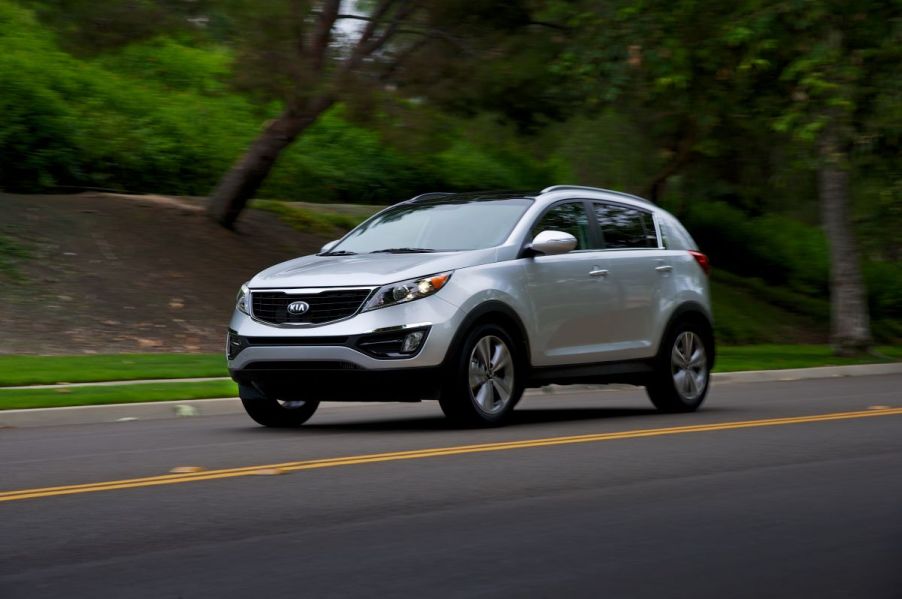
18 Attorneys General Seek Federal Recall Over Hyundai and Kia Car Thefts Nationwide
Two weeks after New York City joined a class action lawsuit against Hyundai and Kia, state governments are seeking federal auto recalls. The move by 18 attorneys general comes after car thefts have plagued the nation for over two years. Korean automakers Hyundai and Kia have been slow to rollout anti-theft updates, leaving thousands of owners distressed. If the federal government issues the recall sought, over eight million vehicles will be affected.
Hyundai and Kia thefts
Since late 2021, skyrocketing car thefts teamed with widespread instances of reckless driving have shocked metropolitan areas across the U.S. Spurred on by viral videos on social media showing how to steal Hyundai and Kia cars with as little as a USB phone charger, thousands of Americans have been victim to the crimes. Despite Internet giants removing “Kia Boyz” videos from their platforms, the mayhem continues.
Although car thefts are criminal in nature, many are looking into their origin as a possible manufacturer defect. Hyundai and Kia cars built before November 1, 2021, do not have engine ignition immobilizers as standard equipment. The critical feature prevents the engine from being started unless the key is present.
What Hyundai and Kia cars are being stolen?

Affected Kia vehicles include the following built between 2011 and 2021:
- Forte
- Niro
- Optima
- Rio
- Soul
- Sportage
- Telluride
Affected Hyundai vehicles include the following built between 2016 and 2021:
- Accent
- Elantra
- Palisade
- Santa Fe
- Sonata
- Tucson
- Veloster
- Venue
The push for an NHTSA recall
In Los Angeles, thefts of Hyundai and Kia cars increased 85% in 2022, a press release from California Attorney General Rob Bonta states. He asserts that 20% of all car thefts in the city are the manufacturer’s cars. In a letter to the NHTSA (National Highway and Traffic Administration), Bonta and 17 others implored the government agency to “use its authority to institute a recall of unsafe Hyundai and Kia vehicles.”
The contingent explains that the vulnerability of the cars in question has created a “safety crisis” on American roads, leading to “numerous crashes, at least eight deaths, and significant injuries,” the letter states. Moreover, the attorneys general claim local law enforcement agencies have been forced to allocate “scarce resources” for the uptick in crime.
Hyundai and Kia are in the middle of rolling out software updates aimed at reducing thefts. However, they won’t be ready until this summer, and Hyundai admits that 15% of the vehicles “cannot accommodate the software updates.” The Korean automaker pledged to provide customers with free steering wheel locks through state and local law enforcement agencies to mitigate the negative public response. Yet, the attorneys general were unsatisfied with the efforts.
“While the effectiveness of the software updates remains to be seen, it is already apparent that this voluntary service campaign is an insufficient response to the safety problem posed by these vehicles,” the letter emphasizes. The group calls for the NHTSA to order a recall based on Federal Motor Vehicle Safety Standards or “defects posing an unreasonable risk to motor vehicle safety.”
What states are involved?
California is leading the way in the push against Hyundai, Kia, and now the NHTSA. But the letter was also signed by attorneys general in 17 other states. They include Arizona, Colorado, Connecticut, the District of Columbia, Illinois, Maryland, Massachusetts, Michigan, Minnesota, New Jersey, New Mexico, New York, Oregon, Pennsylvania, Rhode Island, Vermont, and Washington.
According to NBC 12, Kia released a statement explaining that it will “continue to take action to address the concerns these attorneys general have raised.” The manufacturer states that its “vehicles comply with federal safety standards.” Hyundai as well reiterated its compliance with federal anti-theft requirements. Nevertheless, as a dozen U.S. cities and 18 states and districts pursue means of redress for their constituents, over eight million vehicles remain at risk.


